Elementary Classes
Weekly Music Classes For LA & Orange County Elementary Schools
The Music Rhapsody elementary school program offers your school much more than just a singer with a guitar. The curriculum taught by Music Rhapsody has been proven to have a long-term impact on musical and academic learning. In fact, parents who themselves grew up in this program now insist on it for their own children.
Developed by founder/director Lynn Kleiner in 1983, Music Rhapsody’s award-winning music education program is based on Orff Schulwerk, a creative teaching philosophy. The Orff Schulwerk approach is the national standard for elementary music education. This approach focuses on allowing students to enjoy the fun of singing, moving, and playing high-quality percussion instruments and recorders in a joyful, game-like group setting while learning to read, write and create music. Lessons spark creativity and higher-level thinking skills.
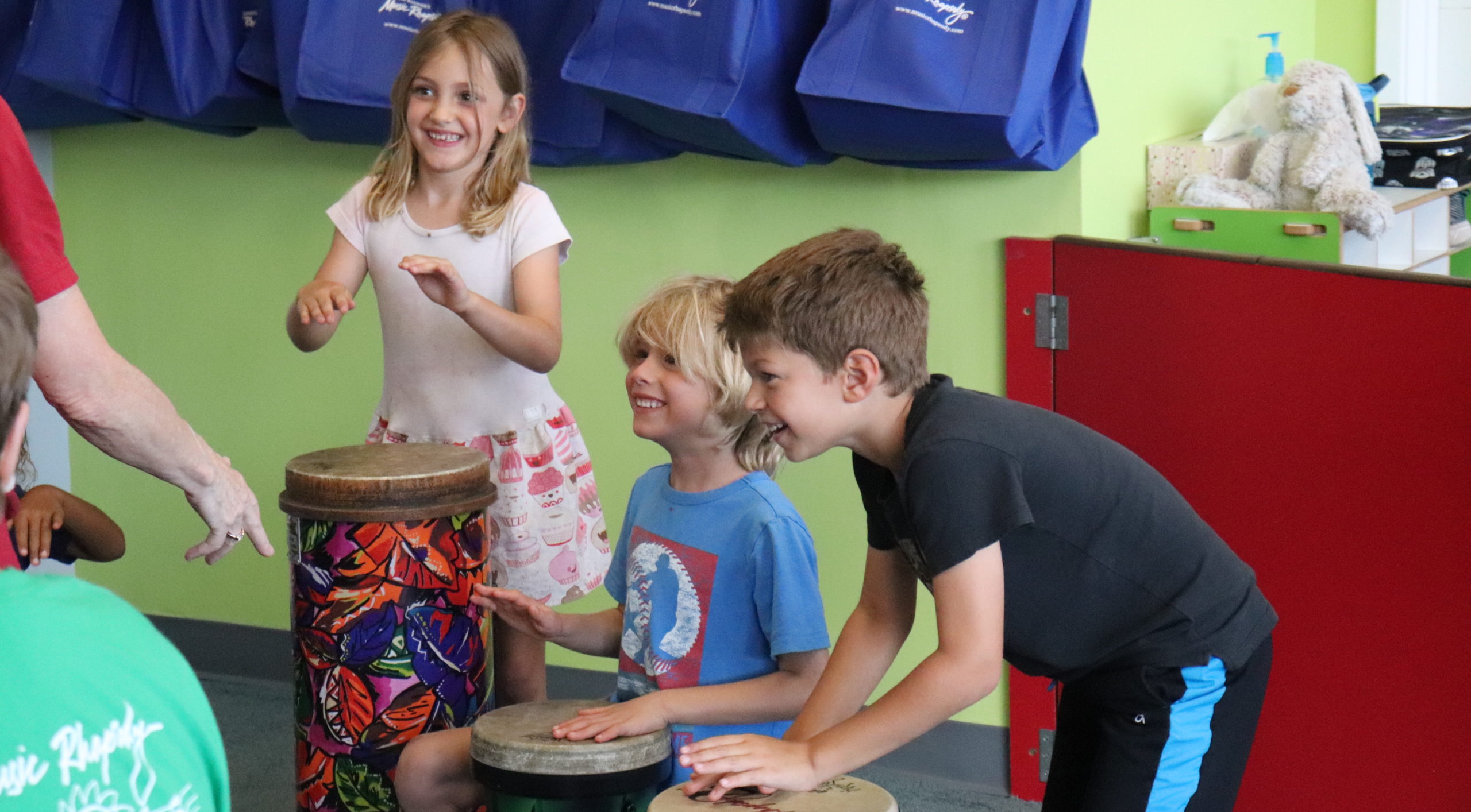
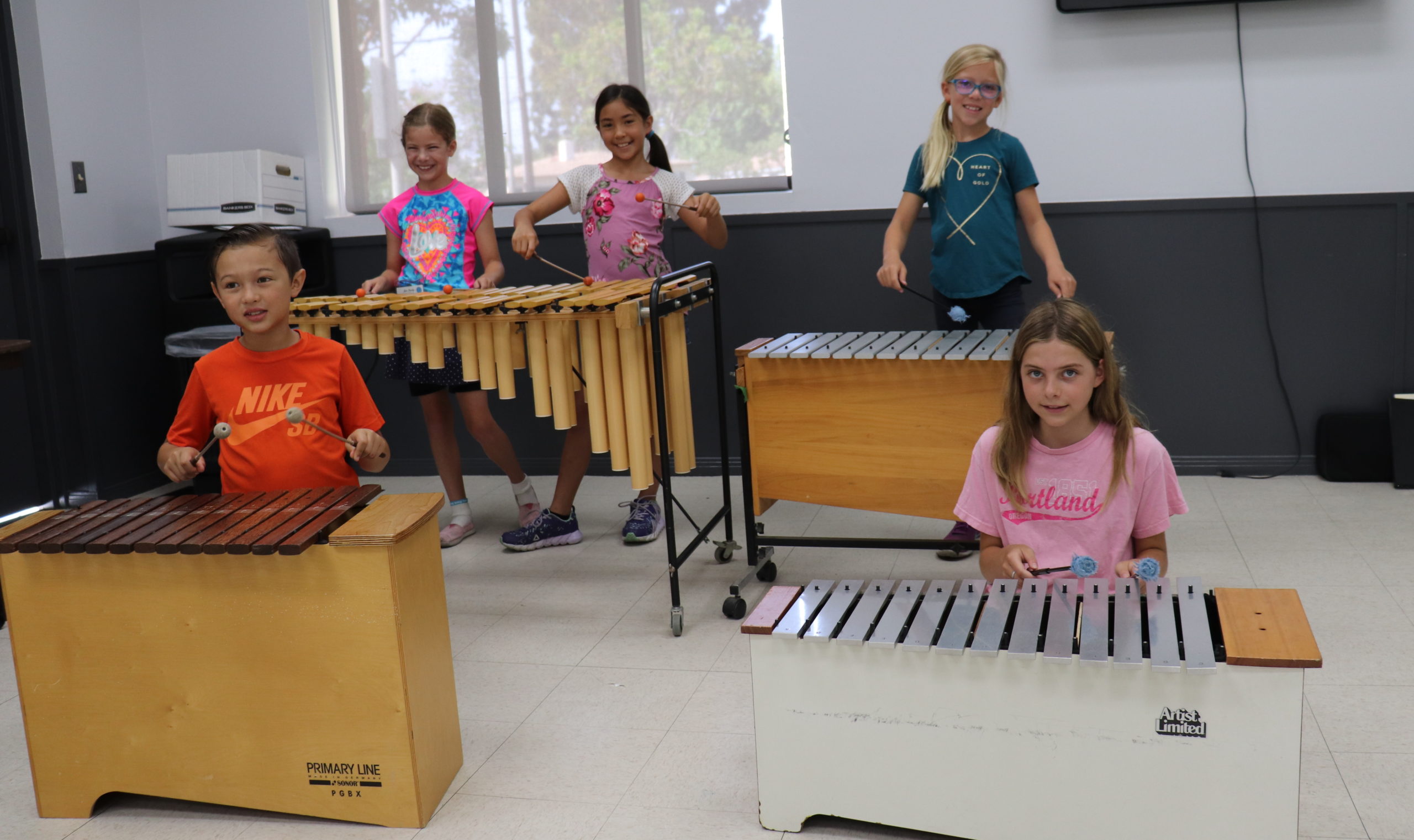
Every student enrolled at the school has a 30-55 minute music lesson once a week. This depends on the age of the students, the schedule availability and room availability. If schedule permits, we will split large classes, presenting to a small class to ensure individual attention for ear training, skill assessment, improvisation, and composing.
The program includes the following areas of music instruction:
Rhythm, Melody, Harmony, Form and Expressive Qualities. To reach our curriculum goals in these areas, we use singing, playing, moving, reading, writing, and creating.
Lessons are organized chronologically through the school year and presented so musical objectives are in a logical progression through the grade levels.
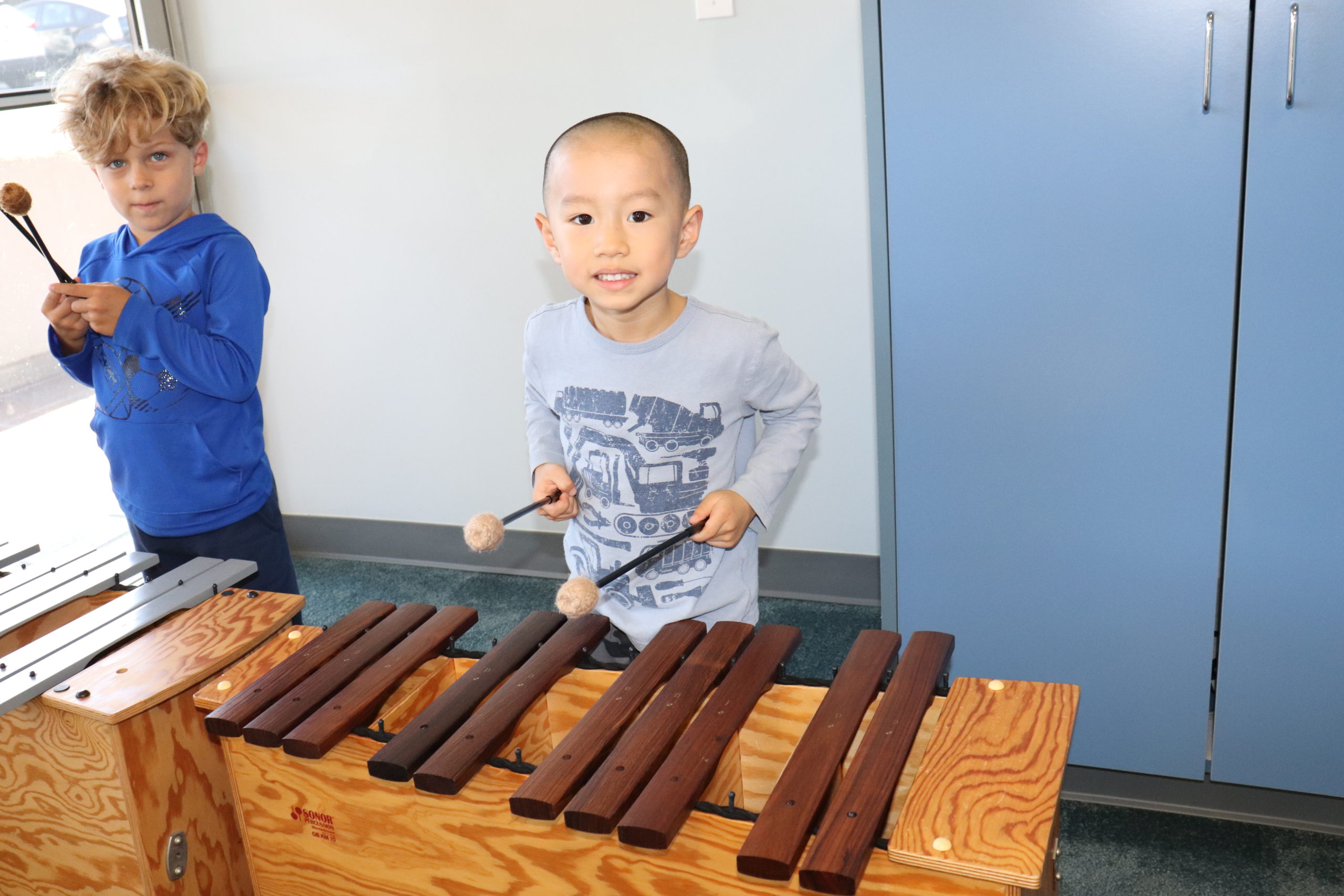
Orff Instruments
Instrumental skills are developed through playing recorders, pitched Orff instruments, and unpitched percussion such as congas, hand drums, temple blocks, and cymbals. Younger students enjoy playing hand drums, shakers, metals (such as triangles and finger cymbals) and woods (such as tone blocks, guiros, and rhythm sticks.) This wide variety of timbres helps to encourage sensitive listening and musical expression.
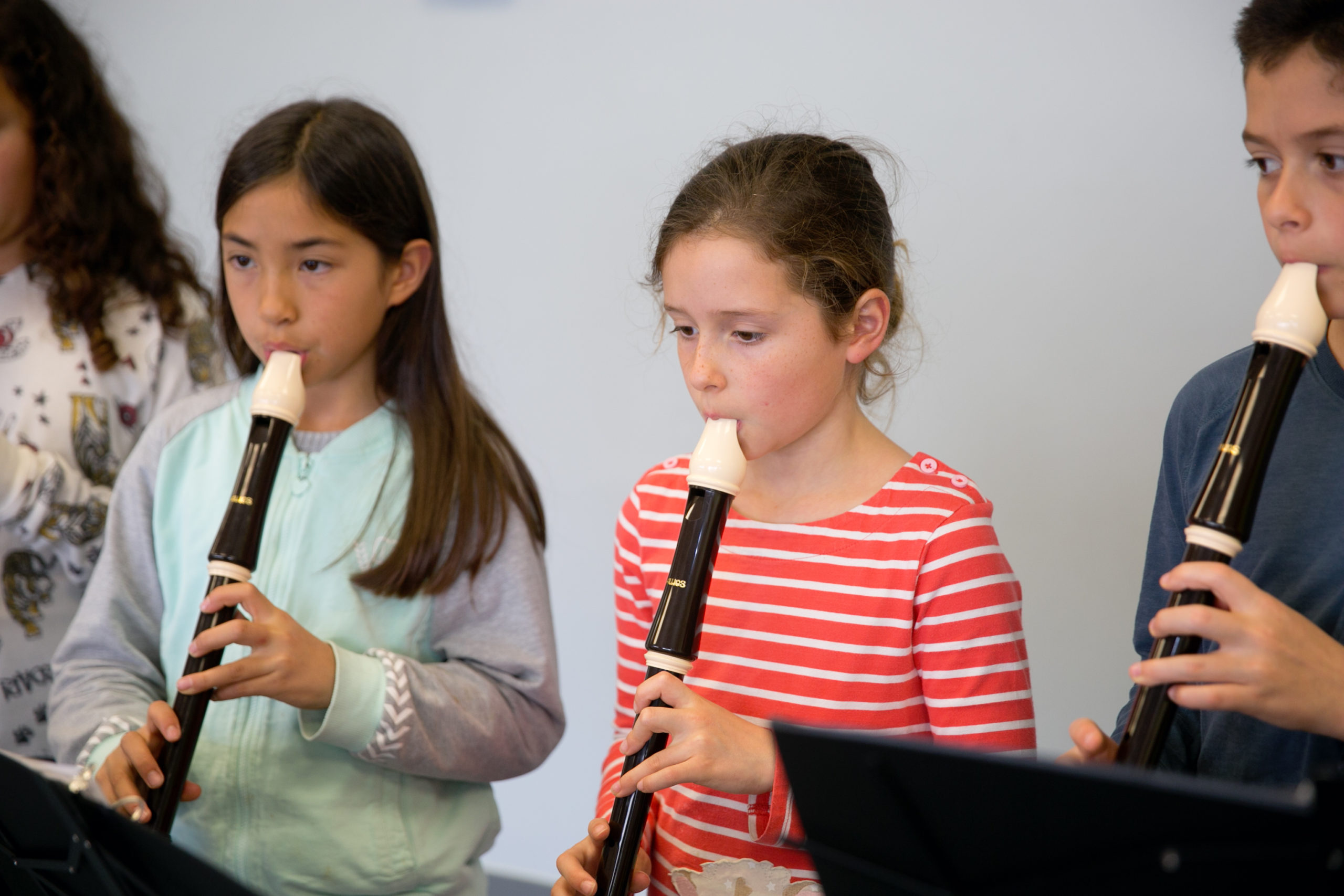
What is a Recorder?
A recorder is a musical wind instrument of the flute family dating back to medieval times. Recently, the recorder has seen a revival of its popularity because of its portability, playability, and ease of learning.
Students learning to play and read music on a recorder are much more successful in future musical pursuits with instruments such as clarinet, saxophone, and flute.
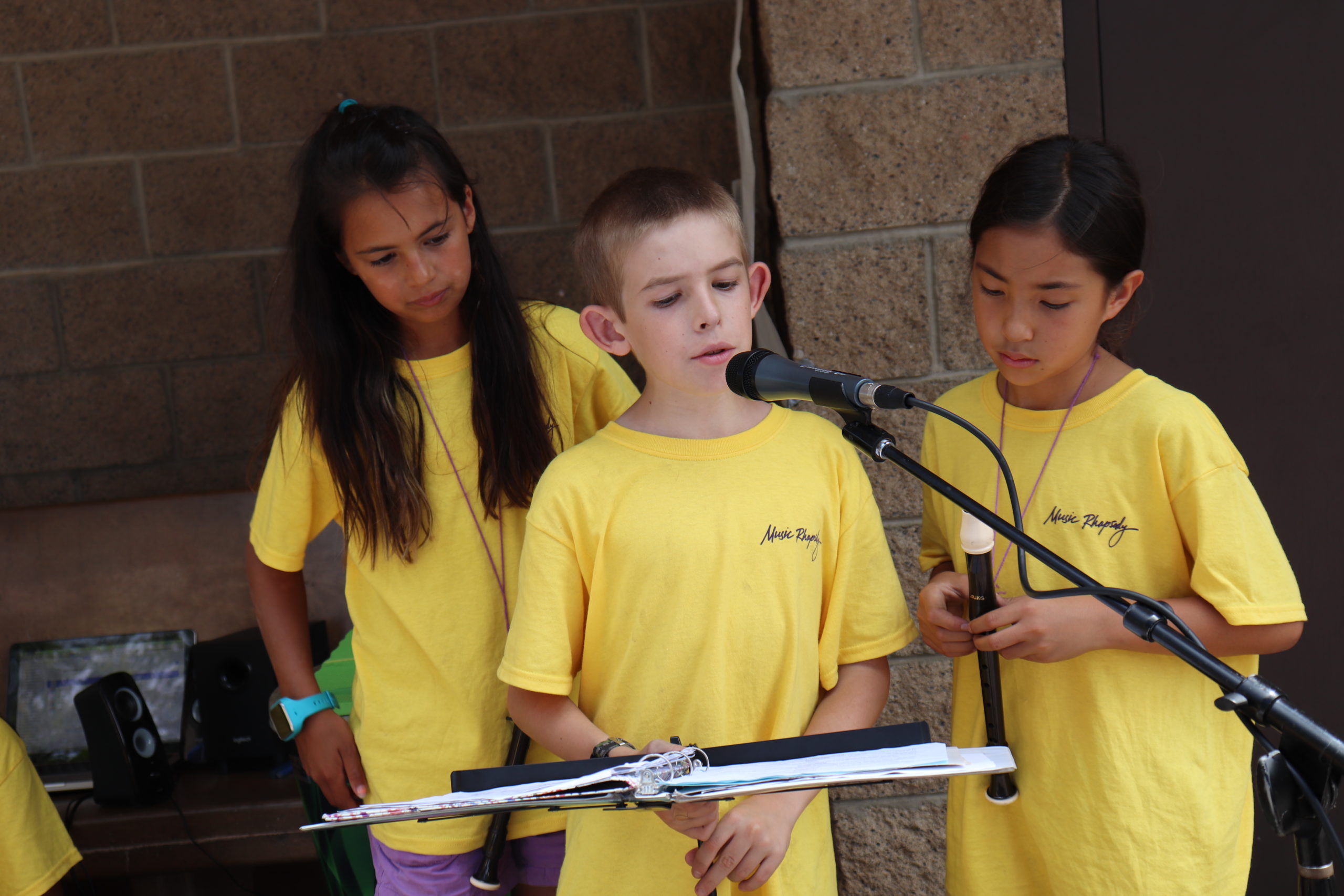
Choral Music
Vocal skills are also cultivated through solo singing games for pitch matching, singing in rounds, partner songs, part-singing, singing ostinatos (short, repetitive music phrases), choral literature and more.
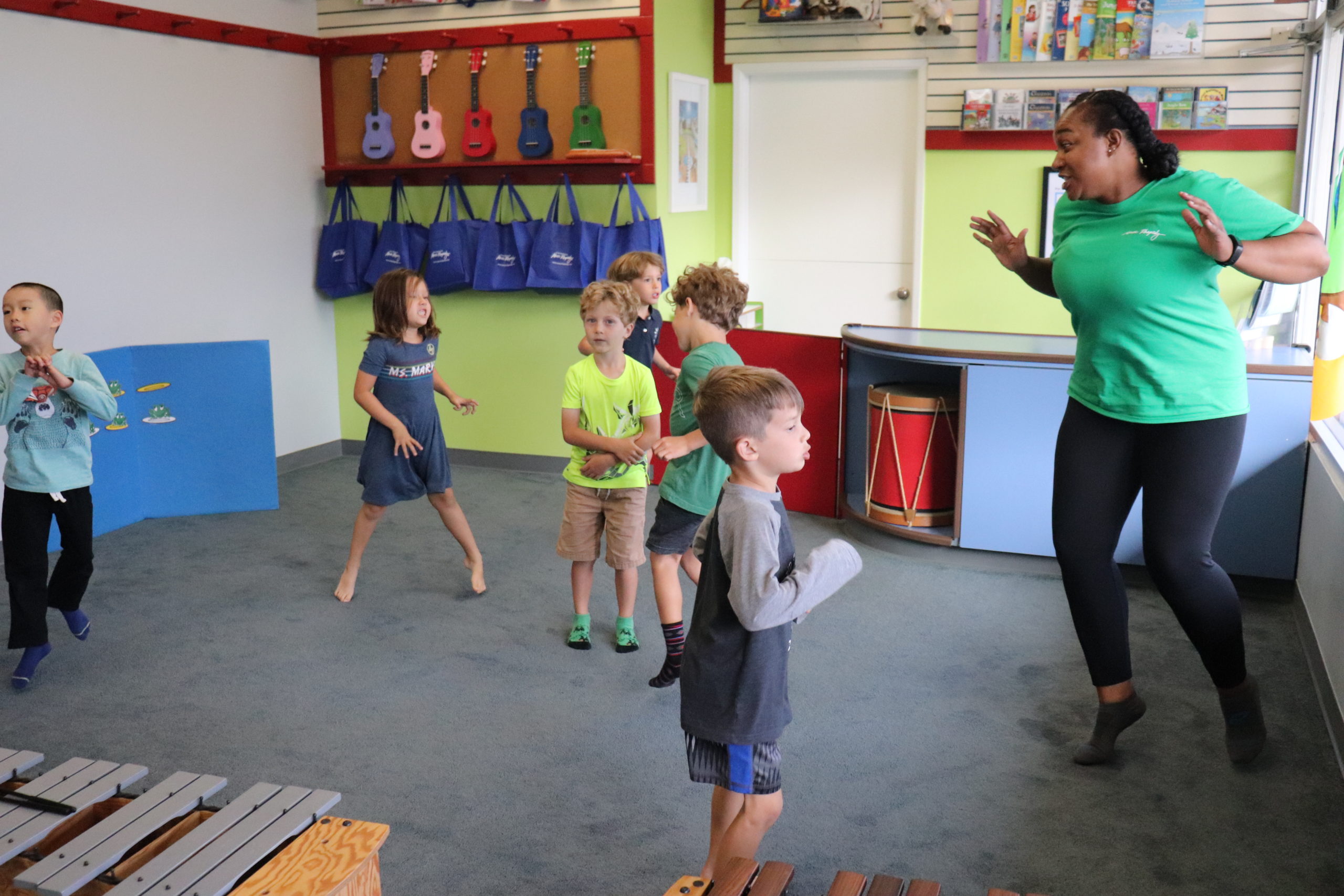
Dance & Movement
Creative movement, folk dance, timing and coordination games are also used to teach rhythm, form, melody, harmony and expressive qualities. Folk dance also introduces music from other cultures. A music room, all-purpose room or open space is required for the instruments and movement.
The curriculum of the elementary Music Rhapsody program can also be coordinated with classroom projects and subject areas. For example, a science unit about the rainforest can be enhanced by songs and activities from our Jungle Beat book. A unit about the farm correlates with our Farm Songs collection. Our creative and enthusiastic teachers have a wealth of ideas to complement literature and social studies as well.
Benefits
- Movement activities and timing games develop motor skills, coordination, body awareness, and spatial concepts.
- Listening, comparing, and responding to various types of music develops thinking skills.
- Repeating patterns, counting beats and reading music develop math and literacy skills.
- Participating in group dances, music ensembles and musical games encourages social skills.
- Students who have elementary music experience before beginning private lessons develop more quickly and stay with their music studies for a greater period of time.
- The timing and movement activities develop motor skills, coordination, and body awareness, which help greatly with sports, dance, and other physical activities.
- Listening, comparing, and responding to various types of music develops thinking skills, while lyrics strengthen memory.
What The Program Includes
Schools that have made the commitment to Music Rhapsody’s music education curriculum for their school year, seeing all staff and students on a weekly basis, receive many extra benefits. Weekly classes include:
- A minimum of one concert per school year and/or parent visitation day if desired.
- An additional Music Rhapsody teacher to help with rehearsals and your school’s concert. Additional instruments so all children can play together at the concert…
- A printed program for the concert including the educational points of each song/activity.
- A Parent Education Class or Open House presentation
- Teacher resources including poems, rhymes, stories, songs or dances that will assist the school’s staff in planning a specific theme or event. Our thirty-plus years of experience can accommodate requests for specific themes and events. We are continuously adding to our songs, dances, puppets, felts, props and instrumentarium.
- Brochures for parents and visitors to explain the music program and its benefits.
- Class sets of Percussion instruments and CDs kept at the school.
- The school will be given the CDs, Kids Make Music, Babies Make Music Too, and Kids Can Listen, Kids Can Move CD. Additional CDs are added in the summer program.
- Teacher In-service Workshop for the school’s staff so new teachers or teachers new to the Music Rhapsody program understand the music curriculum and how they can make the program more successful.
- Articles for your school newsletter. A monthly article is available about the benefits of music education and answers to frequently asked questions by parents.
- Music Resources that are recommended for students for home music making are available to the school once a year for fundraising.
- Your Music Rhapsody music teacher receives ongoing training. Music Rhapsody offers 3 in-service training workshops for our staff each school year and an annual 6-day intensive summer training course. Music Rhapsody pays for membership to Orange County and LA Orff chapters, offering 8 full-day trainings during the school year.